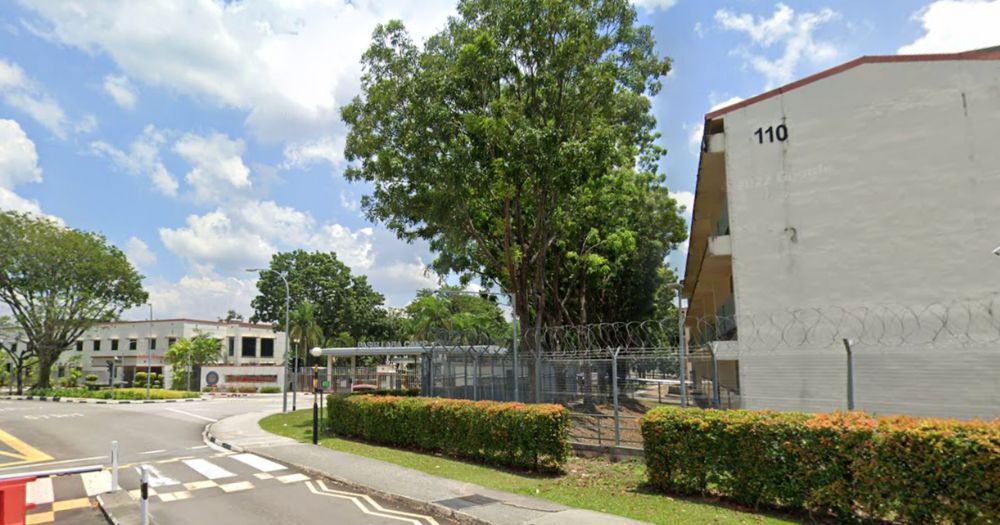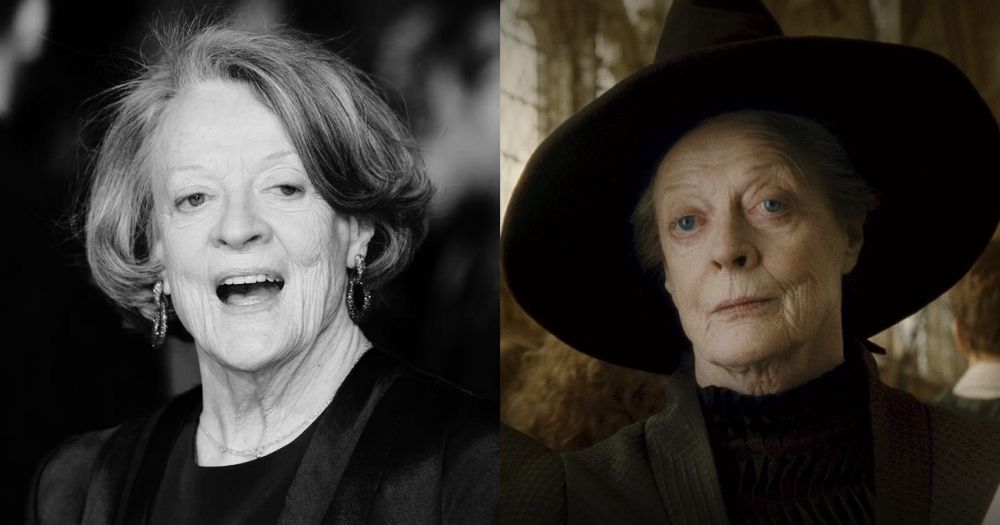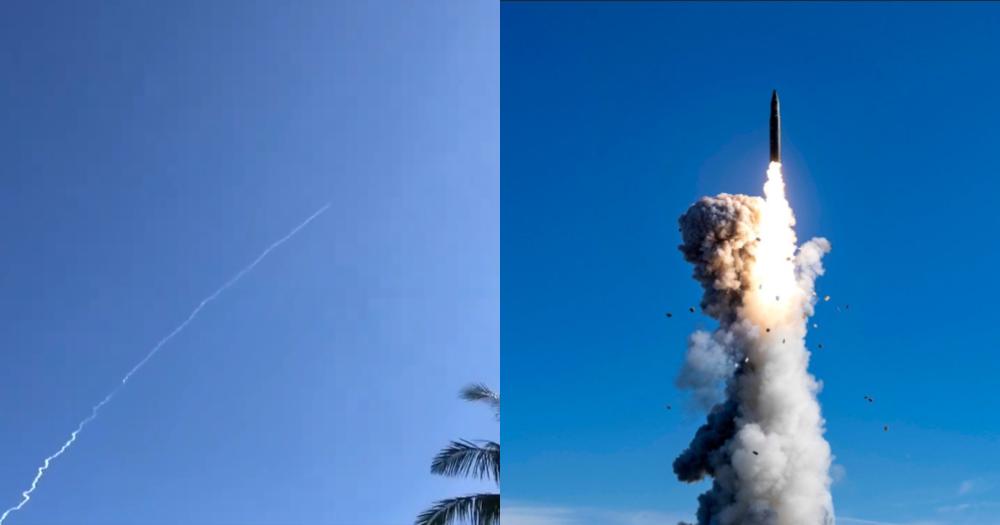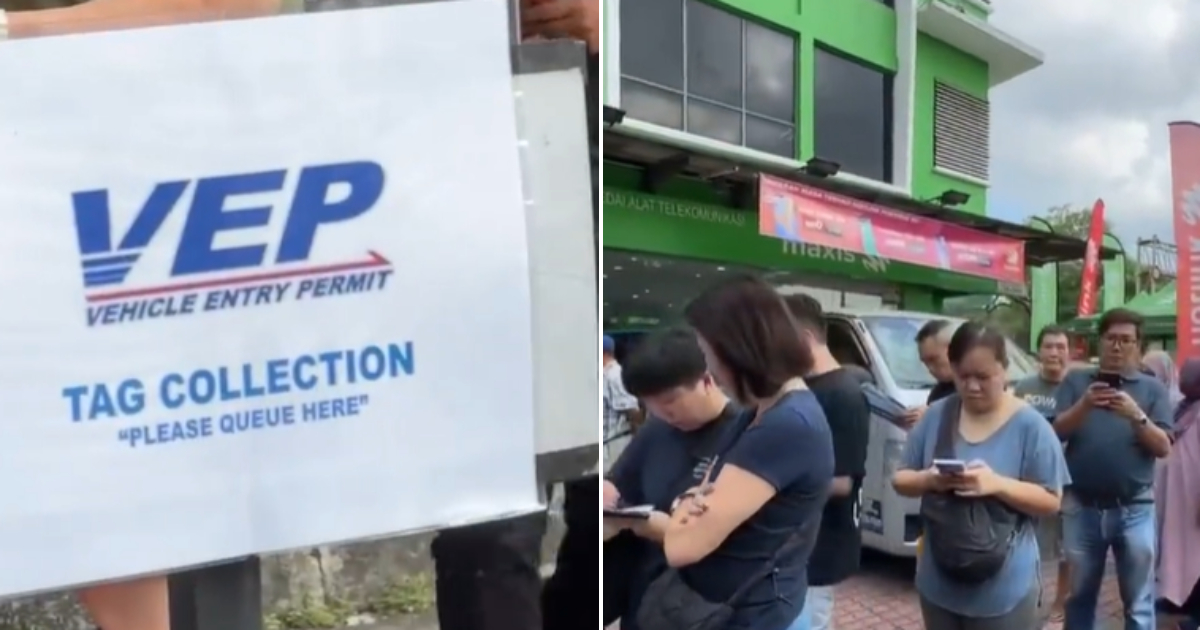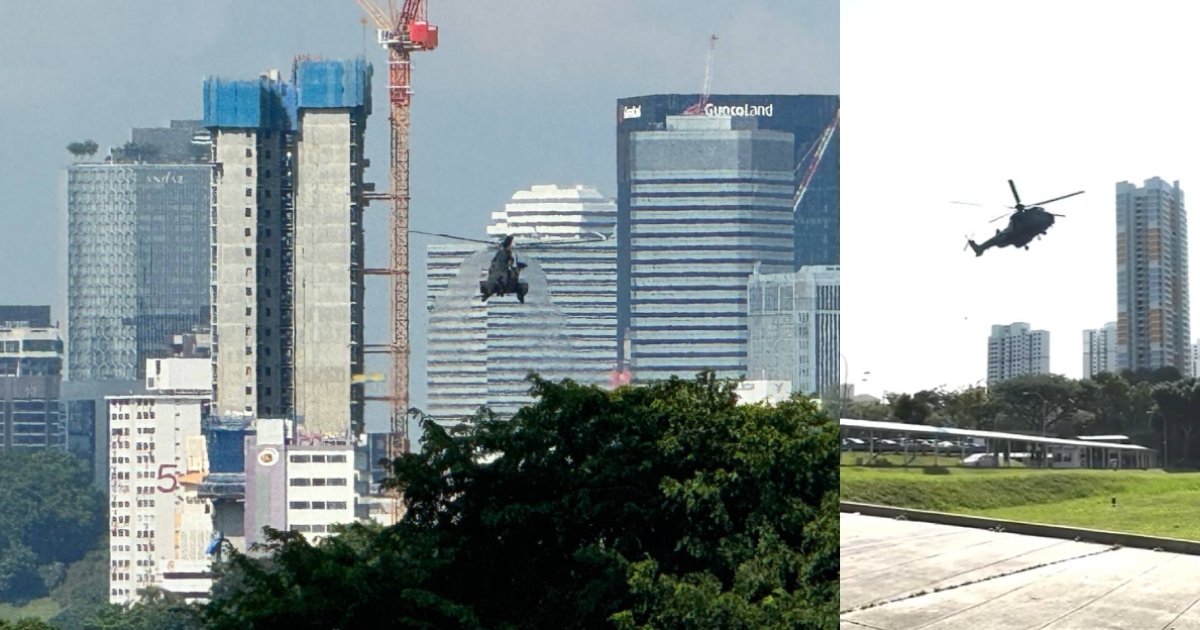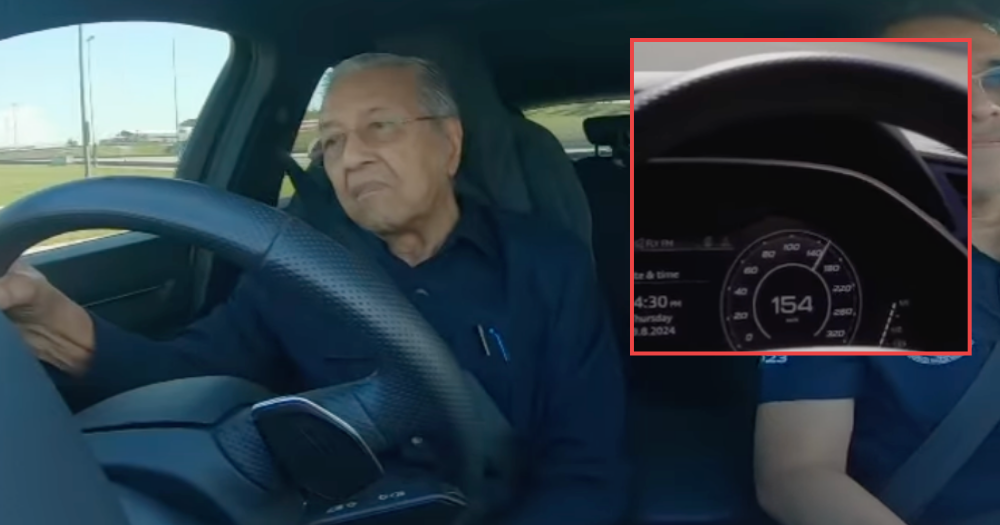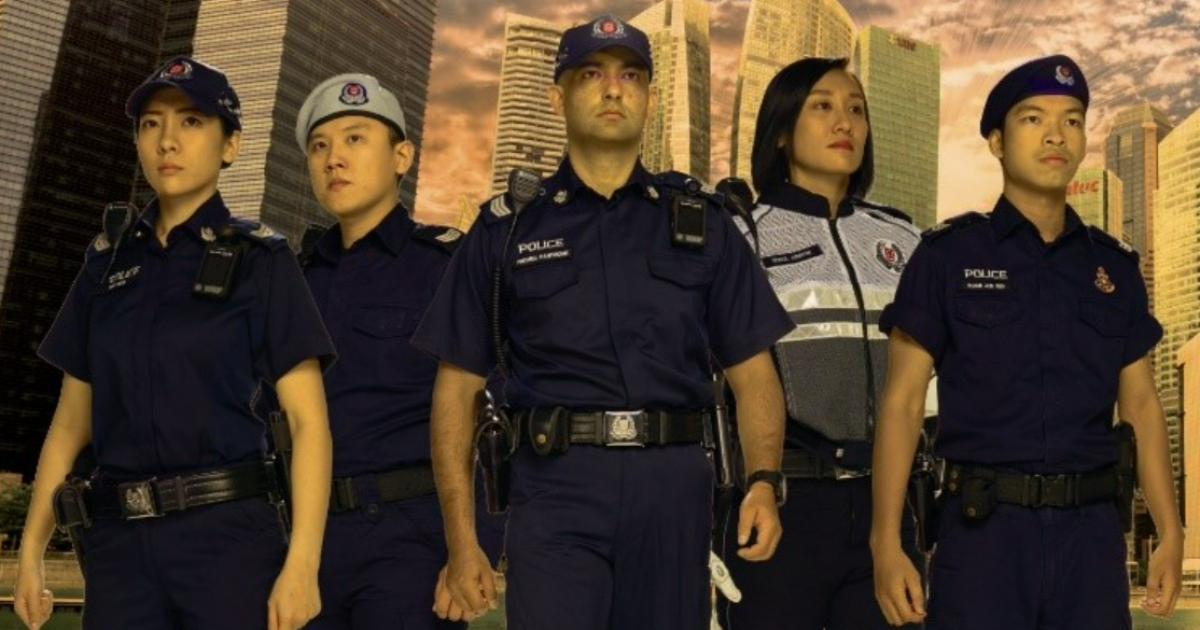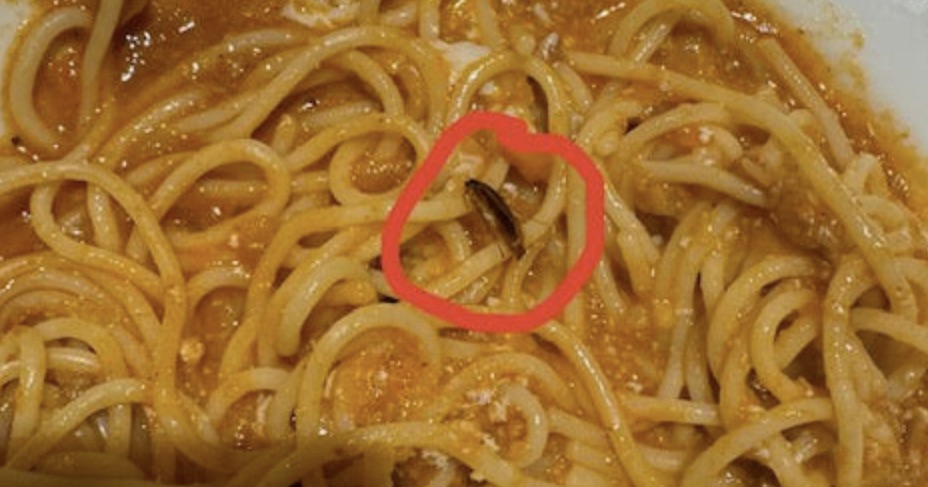‘SQ’ stands for S’pore Airlines. But why not ‘SG’ or ‘SI’, & what exactly is the ‘Q’?
A Q that I just can't seem to find the A to.
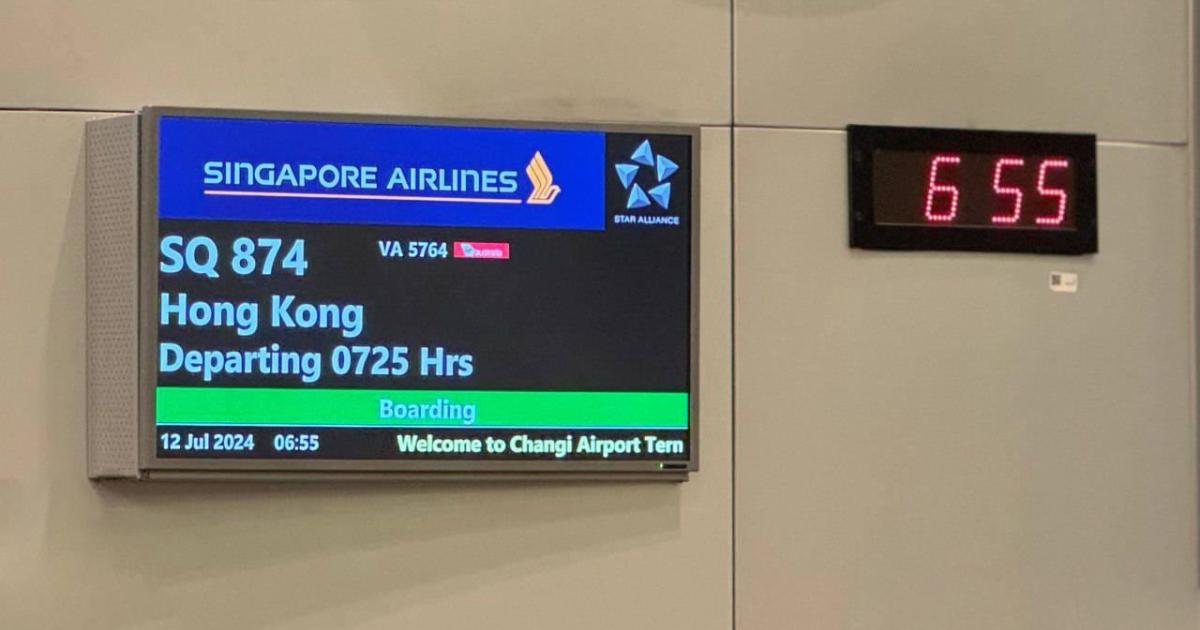
Although an aunty told me yesterday that my kopi-o kosong peng order "sounded perfect", I'm not a Singaporean.
It means I, as an Australian who's still learning about Singapore, often have a lot of questions for my Singaporean colleagues:
"What does paiseh mean?"
"Wait, you don't wear sun protection?"
"Where can I get the best chicken rice?"
On work-from-home days, I leave a tab open with "what does *blank* mean?" in the search bar, so I'm ready to go when someone in a work chat undoubtedly uses a Singlish phrase I don't understand.
 Advice from a colleague.
Advice from a colleague.
But one day, gathered around a table in Mothership's pantry, it was my turn to ask a question which stumped my colleagues.
Eh, what's the Q?
We were eating our lunch together, as we always do.
The discussion jumped around. We moved from Netflix series "Three-Body Problem", to the nasi lemak store in our canteen, and then to travel.
We compared budget airlines to the likes of Emirates and Qantas, asking if the service and comfort warranted the vastly different price tags. Most people said yes.
It was during this part of the discussion that someone mentioned "SQ".
I didn't know what they meant so, as always, I asked.
"Singapore Airlines," replied a colleague.
Naturally, I wanted to know what the Q stood for.
No one knew.
SQ is the IATA Code
All airports and airlines have a standardised two-character code issued to them by the International Air Transport Association (IATA).
First introduced in 1947, the codes are used in commercial scenarios; it's what we see when we make a reservation, on the departures board at the airport, and printed on our tickets.
Each airline's code is also — by convention — used in their flight numbers. Hence the Singapore Airlines flight numbers begin with its IATA code, "SQ".
Additionally, according to IATA, the codes are used for cargo documentation, legal, tariffs and other commercial/traffic purposes.
It's worth pointing out that the International Civil Aviation Organisation (ICAO) also issues three-character airline and airport codes (for Singapore Airlines, it's "SIA"), but these are used in a different capacity—typically for air-traffic control.
Most IATA codes for airlines are easily identifiable:
- BA is British Airways.
- AA is American Airlines.
 Asia's best airport, Changi. Image via Changi Airport Group.
Asia's best airport, Changi. Image via Changi Airport Group.
Then there are other airlines whose IATA codes are less straightforward:
- EK is Emirates — the airline's first flight was from Dubai to Karachi, Pakistan.
- MS is Egypt Air — Misr (or Masr) is the romanised spelling of Egypt in Arabic (مَصْر). The airline was formerly known as both Misr Airlines and MisrAir.
Nowadays, with more than 1,000 commercial airlines and only 676 possible combinations of two letters, IATA codes now incorporate numbers.
This makes it difficult to identify some airlines:
- B6 is JetBlue.
- H9 is Himalaya Airlines.
But Singapore Airlines separated from Malaysian-Singapore Airlines in 1972, some time before numbers were introduced in airlines' IATA codes.
Based on the timeline, it seemed likely that SQ was chosen for a particular reason and I wanted to find out what that was.
Superior Quality?
Online, the answer which seemed to pop up the most was that "SQ" stood for "Superior Quality".
This theory was splattered across online forums, blogs, academic articles, and even a wedding photographer's social media account.
And whilst I struggled to find the first mention of "Superior Quality" associated with Singapore Airlines, the idea seemed awfully plausible to me.
Right from the get-go, Singapore Airlines set out to be "sophisticated and modern", and, at the behest of Lee Kuan Yew, profitable.
Nowadays, Singapore prides itself on being a global aviation hub and its national carrier has built up a reputation for safety, reliability, and customer service, across the world — which has inadvertently reflected well on the country.
A 2009 academic article posits the "positioning of service excellence & superior quality and brand equity" as one of the key elements which differentiates it from other airlines.
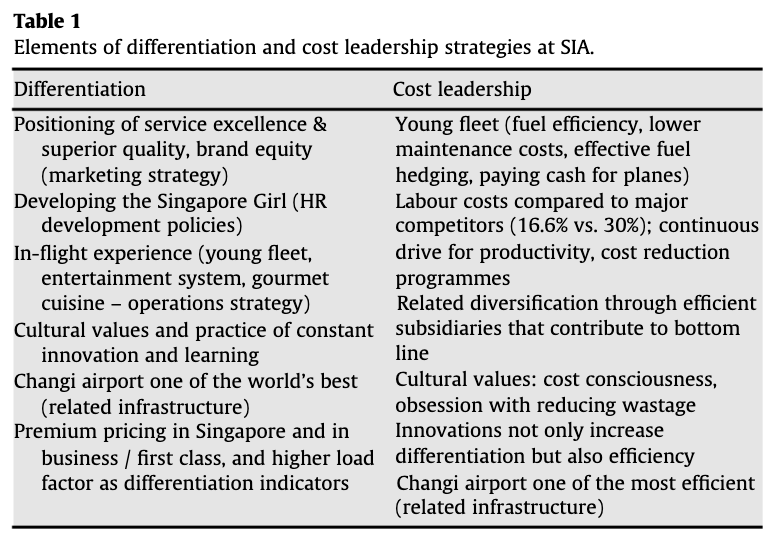 Screenshot from the Journal of Air Transport Management.
Screenshot from the Journal of Air Transport Management.
For an airline which has won a slew of awards, including Condé Nast Traveller's "Best Airline in the World" award 34 times, and made several appearances on Fortune magazine's list of the "Most Admired Companies in the World", it's clear that "Superior Quality" is a standard Singapore Airlines ascribes to.
According to a user on an online forum, "SQ" — and "Superior Quality" — was chosen by the airline to set them apart from their competitors and act as a reminder to staff of the level of service expected.
Another blog post, which argued "the world's impression of Singapore comes from Singapore Airlines", said the same thing.
In fact, there were so many netizens saying "SQ" stood for "Superior Quality" that I struggled to find many alternate theories. However, it all appeared to be speculative, with no confirmation from the airline itself.
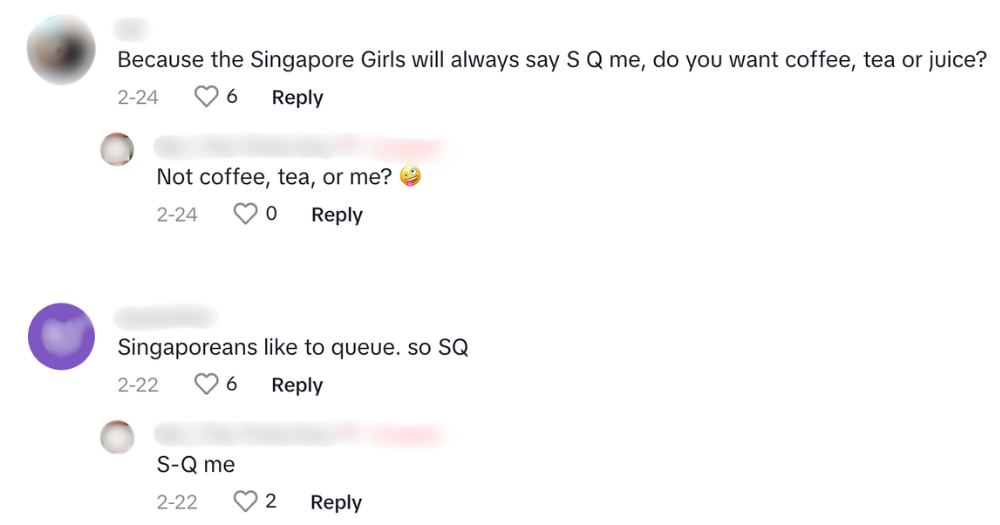 Some very serious contenders. Screenshot via TikTok.
Some very serious contenders. Screenshot via TikTok.
But then I came across a recent LinkedIn post. It told the story of a passenger on an SQ flight who observed the kindness of the flight attendants on board and wanted to personally voice his praises to the flight manager.
In response to his compliments, the flight manager reportedly replied:
“Thank you for choosing SQ – Superior Quality, always."
If even the employees are jumping on the bandwagon and giving airtime to the theory, does it make it legitimate?
Why would Singapore Airlines choose "SQ"?
At the time of Singapore Airlines' separation from Malaysian-Singapore Airlines, the IATA code "SA" had already been claimed by South African Airlines and "SI" was being used by Sierra Pacific Airlines.
But there were others relating to Singapore which had yet to be claimed, namely "SG", which only became the IATA code for Indian low-cost airline SpiceJet in the early 2000s.
It got me thinking, of the hundreds of options available, why would Singapore Airlines choose "SQ"?
Or, was it perhaps assigned to airlines like some netizens have suggested?
 Image via Singapore Airlines.
Image via Singapore Airlines.
Looking through the catalogue of IATA codes, I found myself wanting to agree with them. I struggled to find any kind of tenuous link between Russia's Severstal Aircompany and D2, its IATA code. Likewise, I couldn't figure out why SkyBahamas was Q7.
But, through my digging, I discovered that even if an IATA code is randomly assigned, it doesn't mean an airline can't use it to their advantage.
Malaysia Airlines (MH) did just that.
It was a 2007 campaign which launched the phrase, "MH is Malaysian Hospitality. It's not just a flight code", decades after its separation from Singapore Airlines. Now, Malaysian Hospitality is synonymous with the brand.
Likewise, Indian budget airline IndiGo embraced their IATA code, 6E, which sounds awfully similar to "sexy".
Our #Hello6E magazine just got #6Eier. The in-flight magazine has a new avatar as it moves from a catalogue format to a full-fledged travel lifestyle magazine. The first issue being launched in October is available on all IndiGo domestic and international flights. Happy Reading!! pic.twitter.com/XdBDz0ANH6
— IndiGo (@IndiGo6E) October 1, 2019
Their in-flight magazine is "Hello, 6E", and a video featuring the company's former CEO, Aditya Ghosh, singing and dancing about "6E boys and 6E girls"— the flight attendants — and wishing customers "many more 6E years to come" has racked up more than 50,000 views on YouTube.
The airline's play on words, which is used extensively in its marketing campaigns, has cemented IndiGo's reputation as an airline with personality and humour.
But unlike Malaysian Airlines and IndiGo, Singapore Airlines doesn't seem to have incorporated "Superior Quality" into any of its marketing campaigns.
In fact, during my trawling of the internet in search for an answer, I couldn't find a comment from Singapore Airlines on the matter at all.
So I emailed them, asking for clarification.
Straight from the horse's mouth
Considering there had been rumours "Superior Quality" was a phrase coined by Singapore Airlines themselves, and an employee had quoted it to a customer earlier this year, it seemed a safe bet that someone on their team would know, and the case would be solved – easy peasy.
They replied:
"IATA codes are assigned to airlines by IATA. Hope this helps!"
It didn't. But a phone call with the spokesperson a week later did.
 Me dreaming about finding an answer to this question. Image via Singapore Airlines.
Me dreaming about finding an answer to this question. Image via Singapore Airlines.
I was kindly told there was no additional information on the topic — especially because it was so long ago — and their guess was as good as mine.
And whilst I wanted a lot more from this conversation (i.e. to be told exactly what "SQ" meant), at least I knew who to go to next.
An "interesting" Q
So I reached out to IATA's Asia and Pacific office, hoping they could enlighten me.
They said it was an "interesting question" and they would do some digging on their end to see what they could find.
A few days later, another email landed in my inbox.
"Hi Emily," it read.
The spokesperson explained the practical uses of the codes and, more interestingly to me, how they're selected:
"Typically, an airline would have preferred designator codes when making the application.
IATA would then check the availability against the inventory of codes.
If the preferred designator codes are not available, an airline often would select one that is close to their original preference."
Then came the coup de grâce:
"Unfortunately we do not have the background as to why Singapore Airlines selected SQ."
It left me wondering, if Singapore Airlines didn't know, and neither did IATA, did anyone know where SQ came from?
Enter Mothership's readers.
Democracy at work
To settle this debate once and for all, I put it to the people.
We sent out a poll on Telegram asking our audience if they knew what "SQ" stood for, providing three response options: "No idea", "Of course", and "I think so...?".
16,874 people responded within 24 hours, and the majority expressed an overwhelming "No idea", with 47 per cent selecting this answer.
At least I'm not alone.
But those who answered "Of course" were not a small number.
How did almost 9,000 Mothership readers claim to know its origins? With all of my digging online and at the National Archives, the best I could find were blog posts written by curious people like me without any real answers.
But in a cut-throat aviation market, where airlines rise and fall in a matter of moments, perhaps Singapore Airlines marketing itself as "Superior Quality" would come across as far too arrogant.
Although the airline ceded the title of "World's Best Airline" to Qatar Airways (for this year, at least), Singapore Airlines still recorded its "highest ever" full year net profit. Yet ticket prices are as high as ever and set to rise.
Thinking back to the conversation in Mothership's pantry, I'm still not sure I agree it's worth paying the extra for the "more premium" or — as my colleagues would say, "atas" — airlines. Instead, it seems to me that Singapore's national carrier can simply do no wrong in the eyes of its compatriots.
Maybe "SQ" really does stand for "Superior Quality" and it has all along, or maybe it's merely a coincidence, a widely accepted myth.
I guess it's not the SQ that matters, but rather that we can get from A to B safely, comfortably (as comfortable as one can be in a cylindrical tube above the clouds), and on time.
Top image by Ilyda Chua

MORE STORIES







